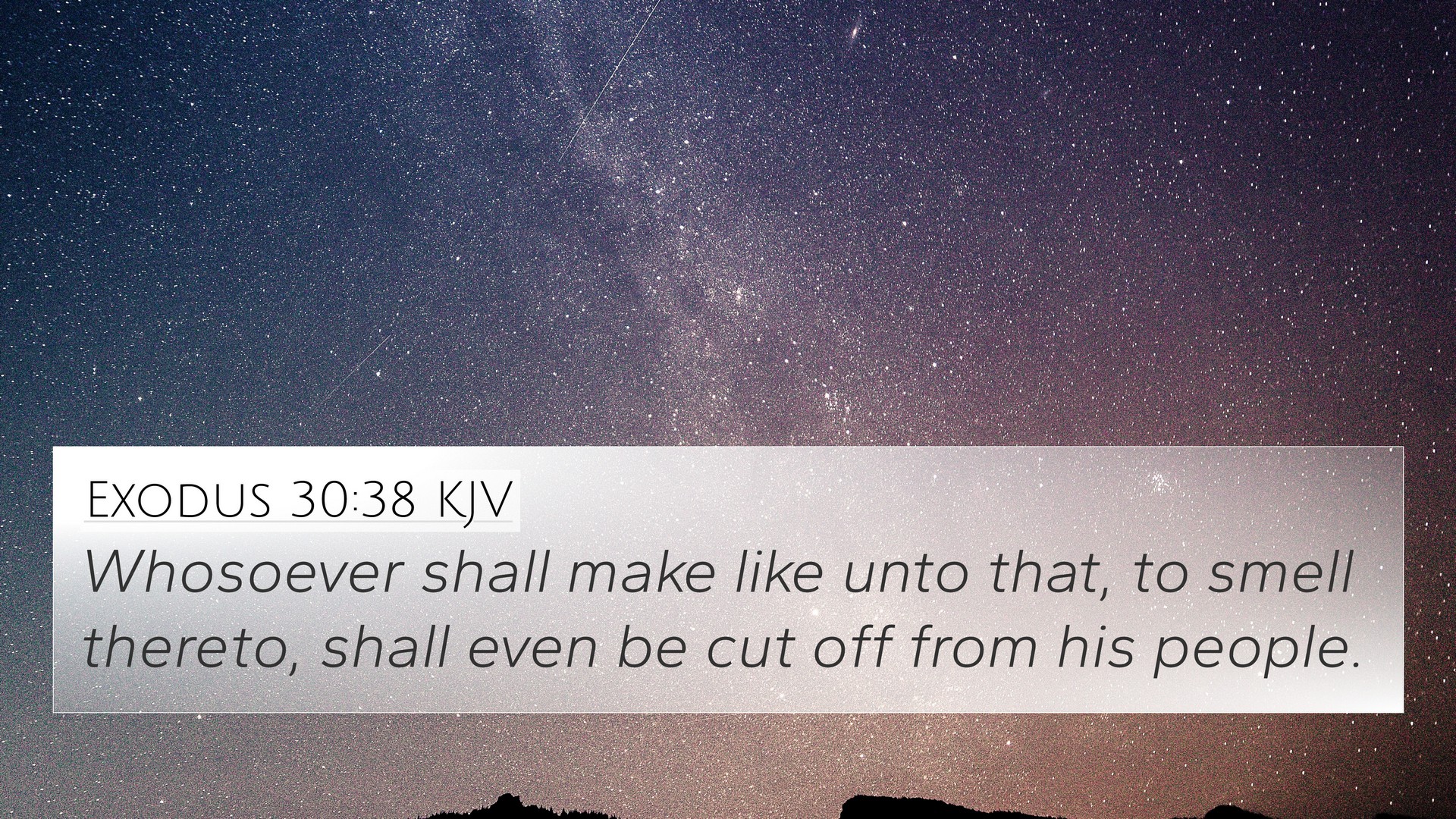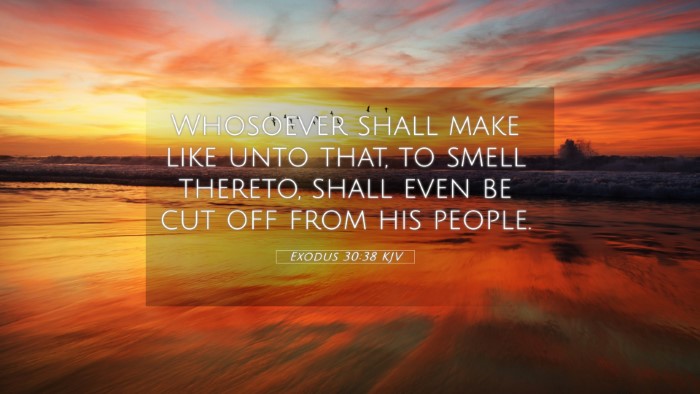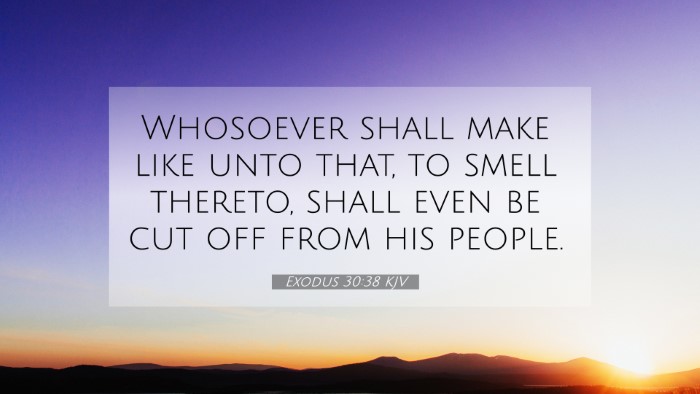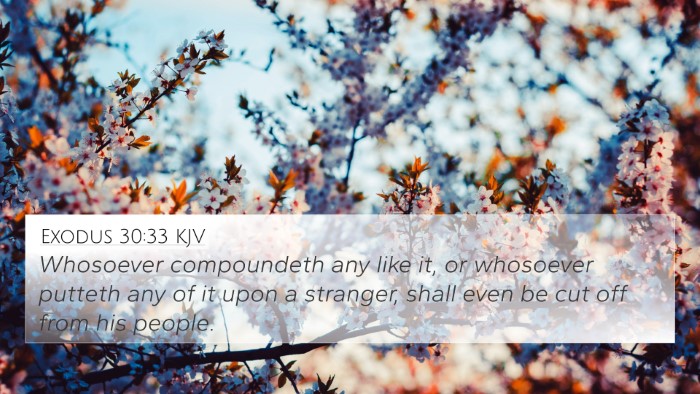Understanding Exodus 30:38
Exodus 30:38 states: "Whosoever shall make like unto that, to smell thereto, shall even be cut off from his people." This verse is part of God's instructions concerning the anointing oil used in the Tabernacle. It highlights the sanctity and exclusiveness of the holy anointing oil.
Verse Context
In the surrounding passages, God is emphasizing the special nature of the items used in worship and the importance of adhering to His commands without deviation or imitation. This underscores the separation of the sacred from the profane.
Commentary Insights
Matthew Henry: Henry emphasizes the severity of violating God's specific commands regarding the anointing oil. He elucidates that this prohibition serves to preserve the oil's sanctity and maintain proper worship. Violating this command could result in spiritual consequences, reinforcing God's desire for His people to respect the sacred.
Albert Barnes: Barnes notes that the divine directive relates to the worship practices of the Israelites. He explains that the oil's unique compound and its usage in consecrating the priests and instruments signify God's chosen people and their role in worship. He urges readers to recognize that imitation of sacred things was explicitly forbidden, as it undermines their sanctity.
Adam Clarke: Clarke reflects on the cultural implications of the verse, suggesting that the oil was considered something holy, and thus any common use could dilute its sacredness. He adds that the punishment indicated—being "cut off"—serves as a warning that misusing holy things could lead to dire spiritual consequences.
Thematic Connections
The theme of sanctity is prevalent throughout the Bible, as seen in Exodus 30:38. This notion can be cross-referenced with several other verses that speak to God’s holiness and the importance of maintaining purity in worship.
- Leviticus 10:1-2 - Nadab and Abihu's unauthorized use of fire before the Lord illustrates the danger of disobeying God's commands in matters of worship.
- 1 Chronicles 13:9-10 - Uzzah's death for touching the Ark shows the seriousness of divine boundaries.
- Isaiah 52:11 - God commands His people to separate themselves from the unclean, emphasizing the theme of holiness.
- 1 Peter 1:16 - "Be holy, for I am holy" reiterates the call to a sanctified life in line with God's nature.
- Hebrews 12:14 - The necessity of pursuing holiness is linked to seeing the Lord.
- Revelation 22:11 - A final call to purity and sanctity as the end approaches signifies the ongoing relevance of the themes found in Exodus 30:38.
- Romans 12:1 - Presenting our bodies as living sacrifices aligns with the call to worship that is holy and acceptable to God.
Cross-Referencing Biblical Texts
Understanding Exodus 30:38 requires recognizing its connections to various biblical themes and narratives. The verse serves as a reminder of the importance of proper conduct in worship and the necessity of separating the sacred from the profane. Below are tools to assist with cross-referencing:
- Bible Concordance: A resource that helps to locate terms and themes across Scripture.
- Bible Cross-Reference Guide: Identifies related scriptures for deeper study on specific topics.
- Cross-Reference Bible Study: Methods to link and compare scriptures for better understanding.
- Bible Reference Resources: Comprehensive materials that provide insights into connections in the biblical text.
- Bible Chain References: A system that links verses together by thematic relevance.
Conclusion
Exodus 30:38 offers profound insight into the nature of God’s holiness and the seriousness with which we must approach sacred practices. It encourages believers to reflect on their worship and the sanctity of the things they touch and partake in spiritually. By applying tools for Bible cross-referencing, one can draw parallels and enrich understanding across the entirety of Scripture, thereby deepening their engagement with the text and its meanings.



